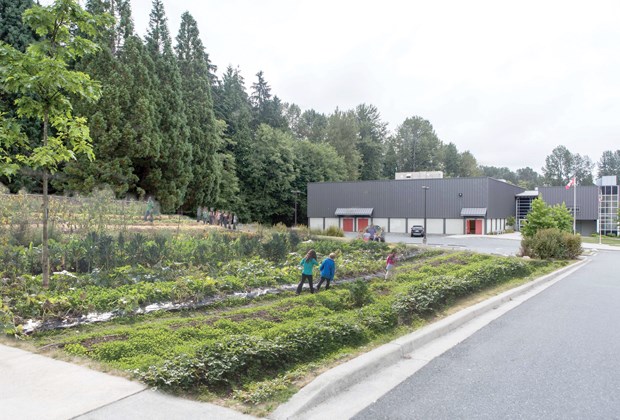Ask your children, regardless of their age, this simple question: Where do fruits, vegetables and meat come from?
Perhaps the question should be: If there were no grocery stores, how would we get food to eat? And see how your children answer.
It is a sad commentary on society's advancement that many city-dwelling children think food comes from the local grocery store without any background understating of how to grow plants.
Douglas Justice, the associate director of the University of British Columbia Botanical Garden once said to me, "Learning how to grow plants is a life skill that everyone should have."
His comment still resonates with me and in this age of food security concerns his comment is relevant now more than ever.
I am not alone in my concern about our current generation's lack of comprehension about how food is grown and how important plants are to humans. At a recent lecture I gave for a local garden club, one of the members came up and told me that in her work as a schoolteacher, she tries to incorporate lessons on how to grow plants into the curriculum, always at her own financial expense.
I am not mentioning her name because she asked for anonymity out of a concern for potential repercussions from her school administration. She is not alone in her discretion. Many teachers I have spoken to over the years do not want to recommend new and relevant curriculum ideas like food security, if it means being unemployed.
The established doctrine of focusing childhood learning primarily on math, science and English still dominates our education system. There's nothing wrong with teaching those important basics, it's just not enough today and not everyone is capable of being a scientist or even wants to.
Teaching children how to grow plants is arguably the responsibility of parents. I completely understand that parents may not have time, the ability or the interest to teach their children about food security.
Fortunately, the people at the Edible Garden Project at North Shore Neighbourhood House are always working to teach young and old alike how important food security is to humanity.
The latest endeavour from the organization is the development of the Sutherland secondary Schoolyard Market Garden.
Before anyone gets upset that children are being taught how to do "stoop labour," as food gardening is sometimes called by misinformed and elitist academics, there's much more to it than that sad categorization.
Food gardens thoughtfully incorporated into school curriculums provide the opportunity for students to learn math calculations, the botany of plants, the biology of living creatures, languages and product marketing. Those limited examples of academic learning outcomes applied in real world situations are invaluable for preparing our children for the world they will inherit. Children also learn interpersonal skills, in particular co-operation, as they work together applying knowledge to grow something in a communal setting supervised by teachers and experts.
Intelligent, long-term incorporation of those concepts into existing school curriculums along with acceptance by school administrators is necessary for such programs to excel. And traditional learning outcomes can be accommodated within the operation of schoolyard gardens, if some thought and innovation is applied. I could go on for hours, but I digress.
Those behind the Sutherland Schoolyard Market Garden are currently crowdfunding their project. It's a sad commentary that funding for such worthy projects is not easily available from banks or other traditional lending sources. Most people can easily get a loan to buy a car, furniture or a house. But if you want to get a loan to build a garden to make money and feed people, the answer is usually, "It's not the type of project we normally get involved with."
So if the status quo won't grow, people find another way, like crowdfunding. The Edible Garden Project's own stated purpose of the initiative is, "Imagine going to a high school with an organic vegetable farm instead of a sprawling front lawn, and having the opportunity to learn science or languages among the vegetable beds. Imagine a place where neighbours meet to buy fresh produce, learn new skills, and participate in making their community a vibrant place."
Those are worthy goals that these days seem to be standard jargon for many organizations with few of them actually living up to the promise. Fortunately, the Edible Garden Project always puts its food where its mouth is.
The one-third of an acre market garden project at Sutherland school has raised $7,419 of its $15,000 goal. The campaign started Oct. 1 and closes Nov. 10. More than 139 individual funders have already contributed to the project, but more help is needed. To help this garden grow, go to indiegogo. com/projects/sutherlandschoolyard-market-garden or, ediblegardenproject.com, and please help grow a garden and our children.
Todd Major is a journeyman horticulturist, garden designer and builder, teacher and organic advocate. [email protected]



